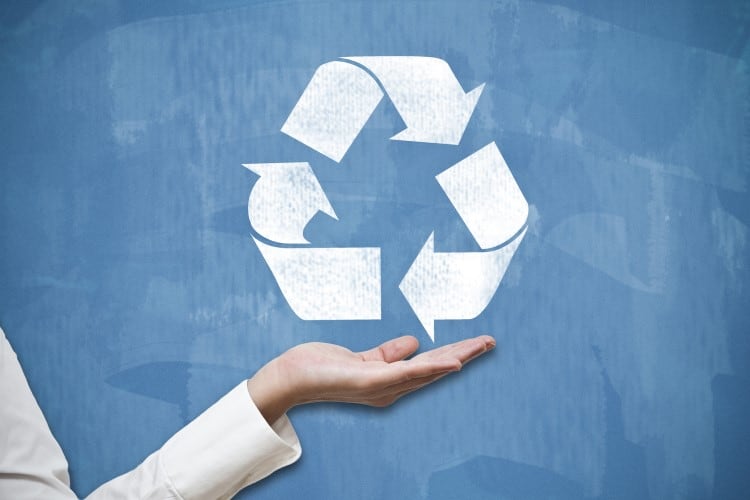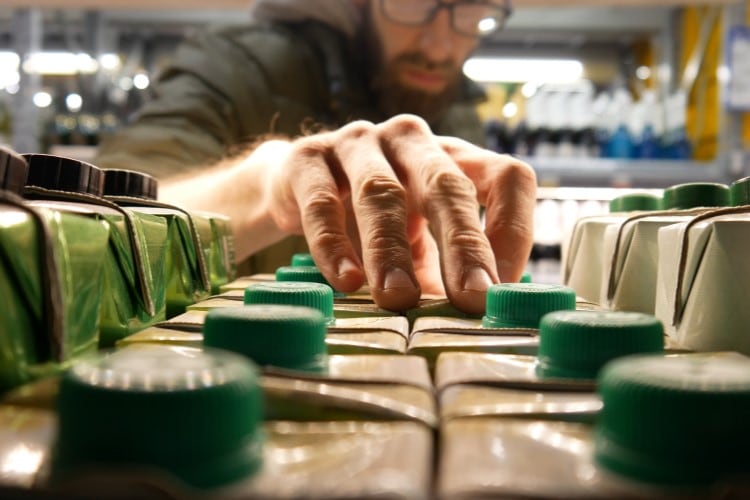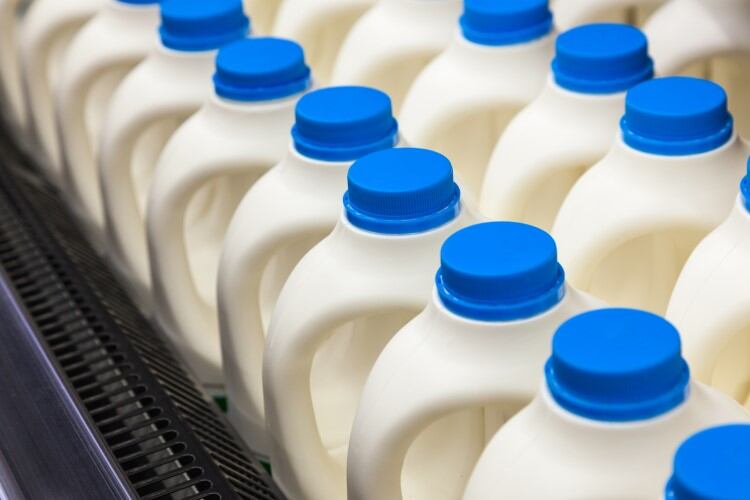Up to 80 tons of plastic waste per year will be shipped from Arla’s Rødkærsbro cheese factory in Denmark to a German plant run by packaging manufacturer Südpack. The waste material – comprising multi-layered plastic films in which mozzarella cheese matures – cannot be mechanically recycled in Denmark and has had to be sent for incineration.
“Using maturing bags for large-scale mozzarella production is the industry standard, as it allows us to handle the cheese while still protecting it in the closed environment needed for the cheese to mature properly and reach the right consistence and taste,” a spokesperson for Arla Foods told us. “We use 250 tonnes of plastic for the cheese maturing films per year at Rødkærsbro.”
The reason why only around a third of this plastic can be shipped to Germany comes down to the capacity of the Südpack plant. “We are currently testing this new method with 80 tons, as this is the capacity we can ship to Germany at the moment,” the Arla spokesperson explained. “Currently, there is no supplier to recycle the multi-layered plastic in Denmark, so our only option is to send it to incineration or ship it to Germany, as we are testing in this project.”
Südpack, itself a plastic films manufacturer, will leverage a process called pyrolysis to convert Arla’s plastic waste into new packaging or fuel that can be used to power diesel engines. According to Encyclopaedia Britannica, pyrolysis is a process that rapidly decomposes organic material through anaerobic heating.
“The 80 tons of plastic waste in this test can be converted into approximately 60 tons of plastic oil; the rest will become water,” the Arla representative told us. “Of that 60 tons, around 35 tons can become new packaging while the rest will be used as fuel. So in that sense, we are re-using 100% of what can be re-used as packaging.”
Arla says the process is more eco-friendly than incinerating the plastic waste. Factoring in the loss of the electricity and thermal energy that incineration delivers, and the negative impact of transporting the films to Germany, the calculation still comes out in favour of pyrolysis when it comes to overall carbon emissions - per tonne of plastic waste handled, the processing emits up to 50% less carbon than sending the plastic film to incineration.
Arla and Südpack will carry out the project during 2023 and evaluate the results to ‘understand how [the process] can be scaled up while also bringing more data to the table so it can be optimized and, hopefully, [become] cheaper’. “One of the primary reasons for this test is to get results that we can share and use to influence the development of the recycling infrastructure making it more applicable for packaging users such as ourselves to achieve a higher grade of recycling with the materials we use,” the Arla spokesperson explained.
On cost, the plastic recycled through pyrolysis is more expensive than virgin fossil plastic, so using this method to make packaging is not economically sustainable in the long run – but could make sense at a larger scale.
The test can also benefit the wider processing and recycling industry, according to Arla. “This is an exciting step and a way for us to be at the forefront and push the development instead of sitting back and waiting for national recycling infrastructures to set a direction - which could and usually does take time.
"One of the primary reasons for this test is to get results that we can share and use to influence the development of the recycling infrastructure making it more applicable for packaging users such as ourselves to achieve a higher grade of recycling with the materials we use.”
“Our packaging ambitions are to eliminate use of virgin fossil plastic in our branded products by 2025 and have fully circular packaging in our branded products by 2030. This is a step in that direction.”



